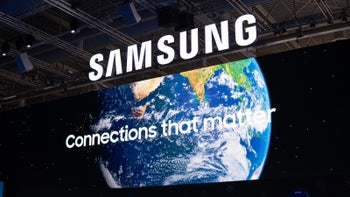$44 billion bet on Texas: Samsung to double down on US chip production

Samsung is gearing up to build yet another semiconductor manufacturing facility in the US, marking its third in the country. This new facility will be located in Taylor, Texas, where the company is already constructing its second facility. Back in 2021, Samsung announced a hefty $17 billion investment for the construction of a chip factory in Taylor, which is anticipated to be up and running later this year.
Now, according to insiders speaking to The Wall Street Journal (via Android Headlines), Samsung is set to significantly increase its semiconductor investment in Texas. The tech giant is aiming to more than double the total investment to around $44 billion.
Samsung's increased spending will be focused once again in Taylor, Texas, just outside of Austin. The area is becoming a semiconductor hub for Samsung, with existing operations nearby. The expansion plans include a new chip-making factory as well as a facility dedicated to advanced packaging and research and development.
It's said that the company will hold an event in Taylor next Monday, April 15, to unveil its expanded investment plans.
To help fund the extensive expansion in Texas, Samsung is anticipated to receive billions of dollars in subsidies from the US Chips Act, according to the sources. Negotiations with the Commerce Department are still underway, but it's anticipated that Samsung will secure one of the largest payouts granted to a single company.
The Chips Act, which got the green light two years ago, set aside $53 billion in grants for projects similar to Samsung's, and the funds have only recently started to roll in. Just last month, Intel received $8.5 billion for multiple chip plants it is planning across the US. And earlier in February, GlobalFoundries got $1.5 billion for its projects in New York and Vermont.
One of the leaders in the semiconductor industry, TSMC, and Idaho-based Micron, a memory chip maker, are also expected to receive grants under the program. TSMC has been the exclusive manufacturer for several generations of Apple's A-series chips used in iPhones and some iPads.
These projects are all part of an effort to strengthen domestic supplies of critical semiconductors. The US share of chip-making dropped to around 12% in 2020 from 37% in 1990. This decline is now viewed as a national security concern, especially in an era where chips are crucial for advanced weaponry, cyber warfare, and AI development.
Samsung's increased spending will be focused once again in Taylor, Texas, just outside of Austin. The area is becoming a semiconductor hub for Samsung, with existing operations nearby. The expansion plans include a new chip-making factory as well as a facility dedicated to advanced packaging and research and development.
According to the report, the initial estimated cost of the manufacturing site is more than $20 billion, while the packaging facility may tally up to $4 billion. Yet, how much exactly it will turn out is still too early to say. Take the first chip-making plant, for example. Reportedly, the costs have gone up due to inflation and other factors, leading to the need for several billion dollars in additional investment, as per the insiders familiar with the situation.
It's said that the company will hold an event in Taylor next Monday, April 15, to unveil its expanded investment plans.
To help fund the extensive expansion in Texas, Samsung is anticipated to receive billions of dollars in subsidies from the US Chips Act, according to the sources. Negotiations with the Commerce Department are still underway, but it's anticipated that Samsung will secure one of the largest payouts granted to a single company.
The Chips Act, which got the green light two years ago, set aside $53 billion in grants for projects similar to Samsung's, and the funds have only recently started to roll in. Just last month, Intel received $8.5 billion for multiple chip plants it is planning across the US. And earlier in February, GlobalFoundries got $1.5 billion for its projects in New York and Vermont.













Things that are NOT allowed: